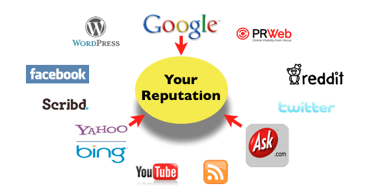Reputation management is about framing public perception of a company in a positive light. It involves shaping public opinion by influencing online information about that business, such as social media posts, search engine results, and user reviews. How the public perceives your business, goods, or services is your reputation, and managing that reputation is essential when user reviews and ratings are so influential in the minds of today’s consumer.
Your company’s reputation is always on the line, and protecting it is a full-time job. Managing your reputation starts with learning to prevent the negative comments and complaints from being lodged in the first place. Consider these user review statistics:
- 4 out of 5 prospects will be influenced to change their mind on a purchase based on reviews—good or bad
- 80% of consumers consider reviews to be on par with personal referrals in terms of trust
- 90% of all review searches end on the first page
The customer can be a company’s worst nightmare or the brand’s biggest advocate. With the rise in review sites and their increasing availability, they’re being used to praise or condemn companies on a daily basis. A reputation manager’s job is to proactively preserve your reputation by responding quickly and implementing preventive measures that minimize the amount of damaging comments and reviews you might receive.
To understand why this role is essential for businesses, here are five need-to-know facts about reputation management.
1. You can’t do it all by yourself

It takes an immense amount of work and attention to detail to manage a company’s reputation. There are social media accounts to keep up with and customer review sites like Yelp, Angie’s List, and Google Reviews to monitor. Not only that, but customers expect you to respond to their problems via tweet and Facebook post right away or their level of frustration multiplies. That’s a lot of demand per customer, not to mention it calls for someone willing to be unbiased, apologetic, and restrained in his or her responses.
Many companies have made the mistake of writing hasty replies to negative reviews, only to further damage their reputation in the eyes of customers. Respond quickly with the facts, but remember that your comment is going to be read by everyone, not just the reviewer.
2. Reputation management is about more than handling the negative...
It’s also about accentuating the positive.
A reputation manager will spend most of his or her time addressing complaints and reviews on social media, but they’re much more than simple damage control. Protecting your reputation first requires you to build it. Regular upkeep of social media accounts and ensuring your information is positive and telling of what your business does is necessary. It’s imperative that customers have quick, easy access to your Facebook, LinkedIn, and Twitter pages; and that they know how to contact you in the event that they have a complaint, review, or compliment.
Keeping your reputation intact also necessitates regular updates to your social media platforms or blog. This continuous wave of content will allow an individual to direct your audience’s attention to your successes, rather than your failures, as may be the case with inactive social profiles. Content generation is key to burying any bad reviews and making your company seem like it’s keeping on top of providing a better service and experience.
3. You can encourage customers to leave honest reviews...
Just direct them to do so.

Nearly 80% of the tweets on customer service on any given week are negative in tone. By letting all of your customers know how and where they can give you feedback, you may be prompting satisfied customers to leave good reviews when they may not have otherwise done so.
If a client is happy with a product or service they may simply move on, glad to repeat the transaction in the future; but the same may be true of unhappy customers who may not leave any comment at all. Instead, they share their bad experience offline.
"A dissatisfied customer will tell between 9-15 people about their experience. Around 13% of dissatisfied customers tell more than 20 people," according to the White House Office of Consumer Affairs.
Having negative reviews won’t instantly destroy your reputation. It’s how you handle those reviews that dictates how customers see you.
4. A few negative reviews won’t hurt you...
But how you handle them might.
While they say it takes 12 positive reviews to undo one complaint, your reputation manager should be well versed in dealing with poor customer experiences quickly and sympathetically.
Respond to these negative experiences promptly.
Tell the customer how you’ve taken measures to prevent their problem in the future, and have the confidence to invite them back once you’ve solved the issue.
Obsessing over or attacking the customers who leave negative reviews will only exacerbate the problem and your reputation.
5. Your reputation is built on what you’ve done...
Not what you are going to do
It would be easy for a business owner to sit down and rave about all of the changes they have in the pipeline, but promising change is not nearly as powerful as demonstrating it. Your reputation will be built upon your actions, not your intentions; and going overboard with future plans will do nothing to alleviate the problems your customers have today. To manage your reputation effectively, you have to focus on what you’re doing now.
- A sincere apology for a poor customer experience
- Prompt replies to customer questions and complaints
- Improving the quality of a service or product as a result of a customer complaint
If you’ve done any of the above then that’s something you can point to as a positive highlight. It demonstrates your company’s ability to listen to a customer’s problem and solve it. Even if your customers have had a few bad experiences in the past, knowing that you work as hard to keep your current clients as you do to secure new ones says a great deal about your business.
When you consider that it costs roughly six times more to acquire a new customer than retain an existing one (Bain & Company), you’ll start to understand the value of keeping clients happy. Building your authority with a reputation manager will help you grow your client list and turn your current customers into loyal brand warriors.
If you're looking for a marketing agency near you in Lancaster or nearby York and Harrisburg markets, make sure you give us a call. We'd love to help.
